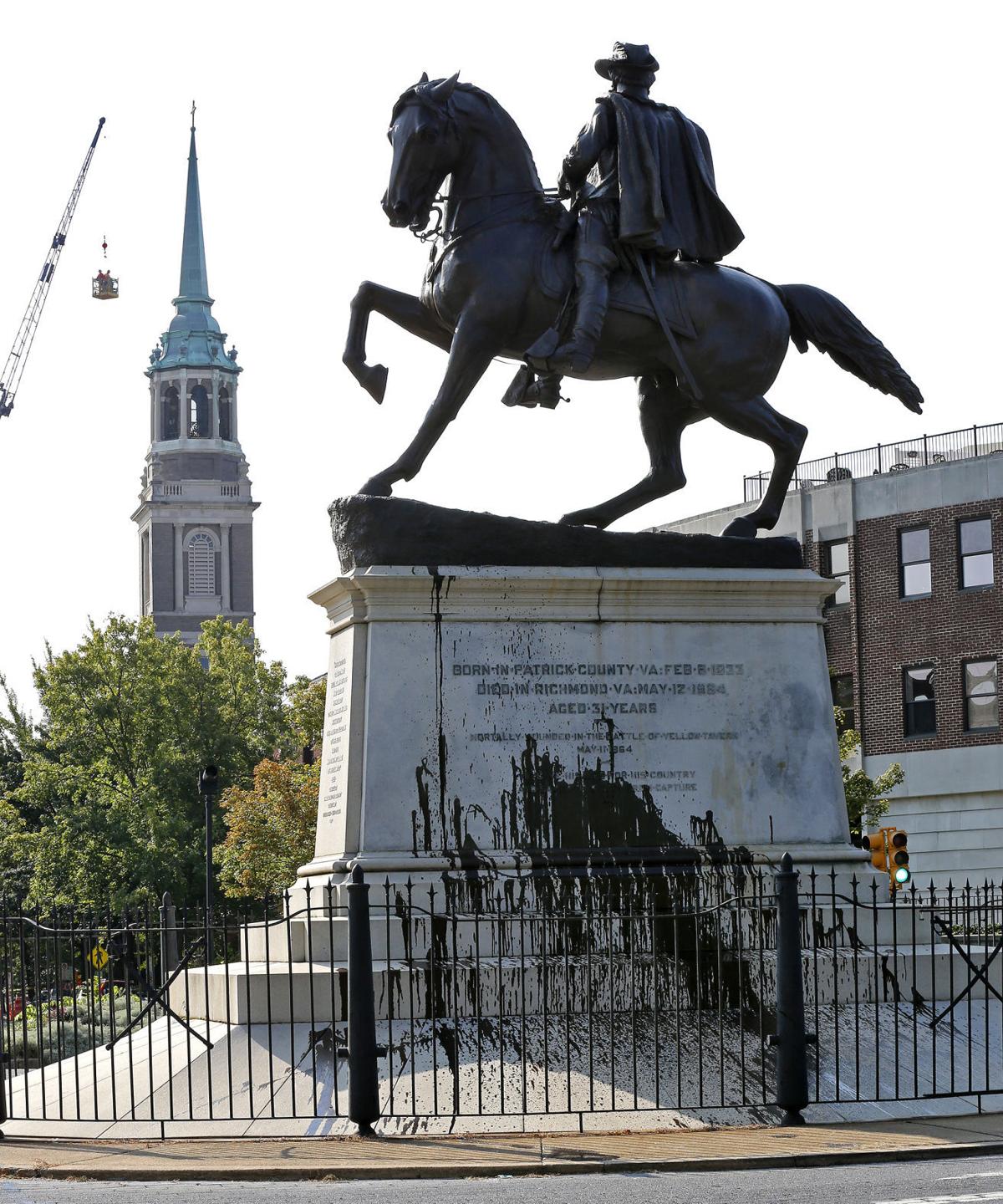Though indicted for treason, Jefferson Davis’s enemies feared his trial as they recognized him as one of the ablest constitutional scholars in America. After his death in 1889, his wife Varina could not maintain their home in Mississippi and moved to New York to earn a living as a writer. There she wrote a lengthy biography of her husband, and Davis admirer Joseph Pulitzer gave her a weekly column in the New York Sunday World with an annual salary of $1500. When she passed in 1906, Varina Howell Davis was given a heroine’s military funeral and placed beside her husband in Richmond’s Hollywood Cemetery.
Bernhard Thuersam, www.Circa1865.com The Great American Political Divide
A Symbol of Heroism to Both North and South
“The saddest lot of all was that of the symbol of the Confederacy, Jefferson Davis.
Benjamin, ( "I will never be taken alive."
Judah P. Benjamin, Secretary of State, CSA NamSouth)
to Dr. Moses Hoge
Mason and Slidell were hateful to the North, but they were beyond the law’s long arm. Davis had to bear the brunt of Yankee wrath – which included becoming the scapegoat for the assassination of Lincoln. The popular song with the refrain “We’ll hang Jeff Davis from a sour apple tree” was almost euphemistic; the most horrible forms of Oriental torture were what the South’s enemies had in mind.
The indignities began when Davis was captured by federal troops . . . [and] the humiliation was no worse than the physical rigors that followed. The Davises were thrown into a dark prison van. Their belongings, from gold to baby clothes, were looted and Northern troops snatched away food intended for the Davis children. The soldiers exposed themselves to Varina Davis.
En route to prison, the Davises received one touching gesture while locked in a hotel room in Savannah. The black waiter who brought their food tray hid, under the cover, a bunch of beautiful red roses and tearfully expressed his sorrow at what had happened to the Davises and to the South.
While the family remained in the hotel, Davis was taken incommunicado to Fort Monroe in Virginia, a stronghold known as the Gibralter of the Chesapeake. Not wanting to take any chances, the federal commander there surrounded Davis with an entire garrison of troops and locked him in heavy chains in a viewless, tiny cell.
His only furniture was an iron cot, his only utensil a wooden spoon, his only rations unchewable boiled beef, stale bread, and water. Squeaky-shoed soldiers marched around him twenty-four hours a day; we was never allowed a private moment. Guards even stood around him when he used the portable toilet that was brought into his cell. Davis’s only company was a mouse he made his pet.
Davis, always a sick man, nearly wasted away. He had been indicted for treason, but was never brought to trial. Habeas corpus and all other basic rights were denied, and he was left to languish in the darkness.
Davis was the only Confederate leader who remained incarcerated – he was doing penance for the entire South. In 1868, after even Northern sentiment was outraged at his unusual punishment, he was freed and reunited with his family. For his dignity under the most horrid of conditions, he won a martyr’s reputation throughout the South, giving inspiration to the thousands suffering through the abject poverty of the postbellum period; any stigma of having lost the war was lost.
Their sons all died, the first in an accidental fall from a balcony, another of diphtheria, and the third of yellow fever. Their daughter, Varina Anne, or “Winnie,” had been crowned by Southern war veterans as the “daughter of the Confederacy.” However, she alienated the entire South when she fell in love with a Harvard-trained Syracuse attorney whose grandfather had been a prominent abolitionist. The affair killed her father in 1889, and nearly 15,000 thronged to his funeral. Davis had outlived nearly all his enemies and had become a symbol of heroism to both North and South.
Out of respect, Winnie called the marriage off and never wed.”
(A Class By Themselves; the Untold Story of the Great Southern Families, William Stadiem, Crown Publishers, 1980, excerpts, pp. 130-132)















